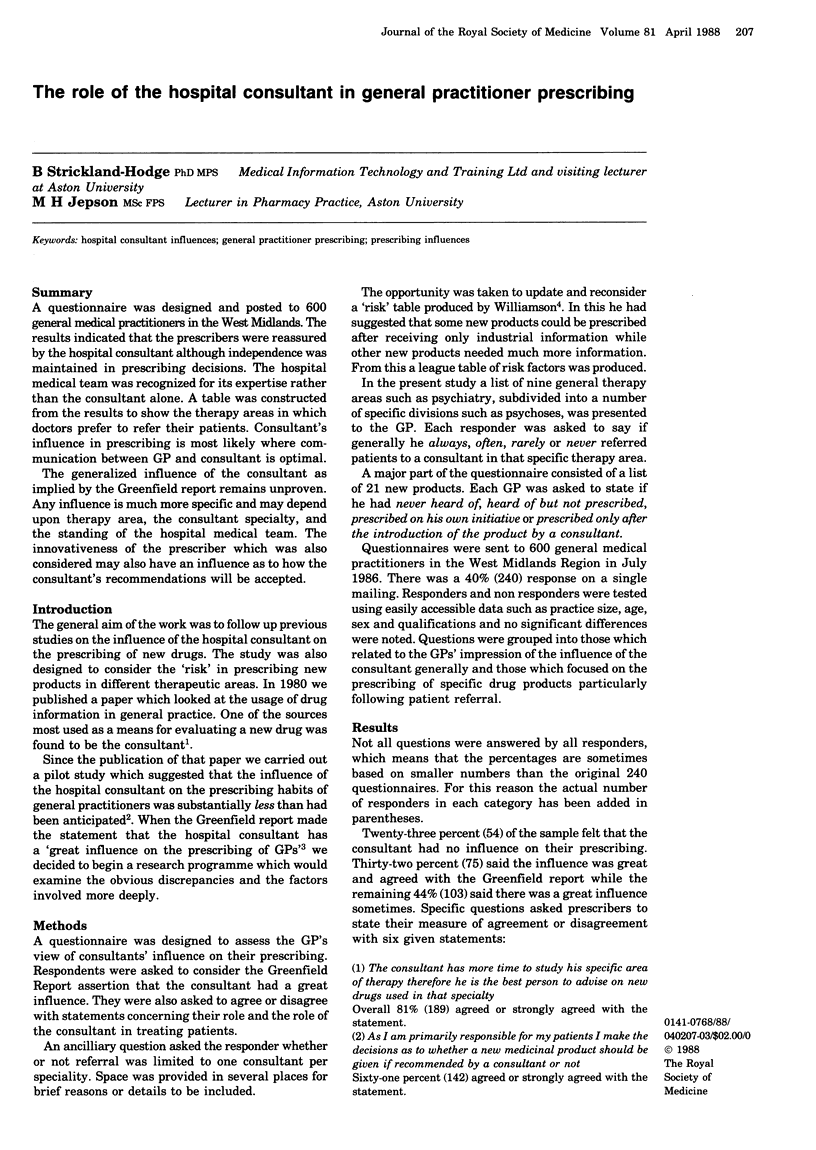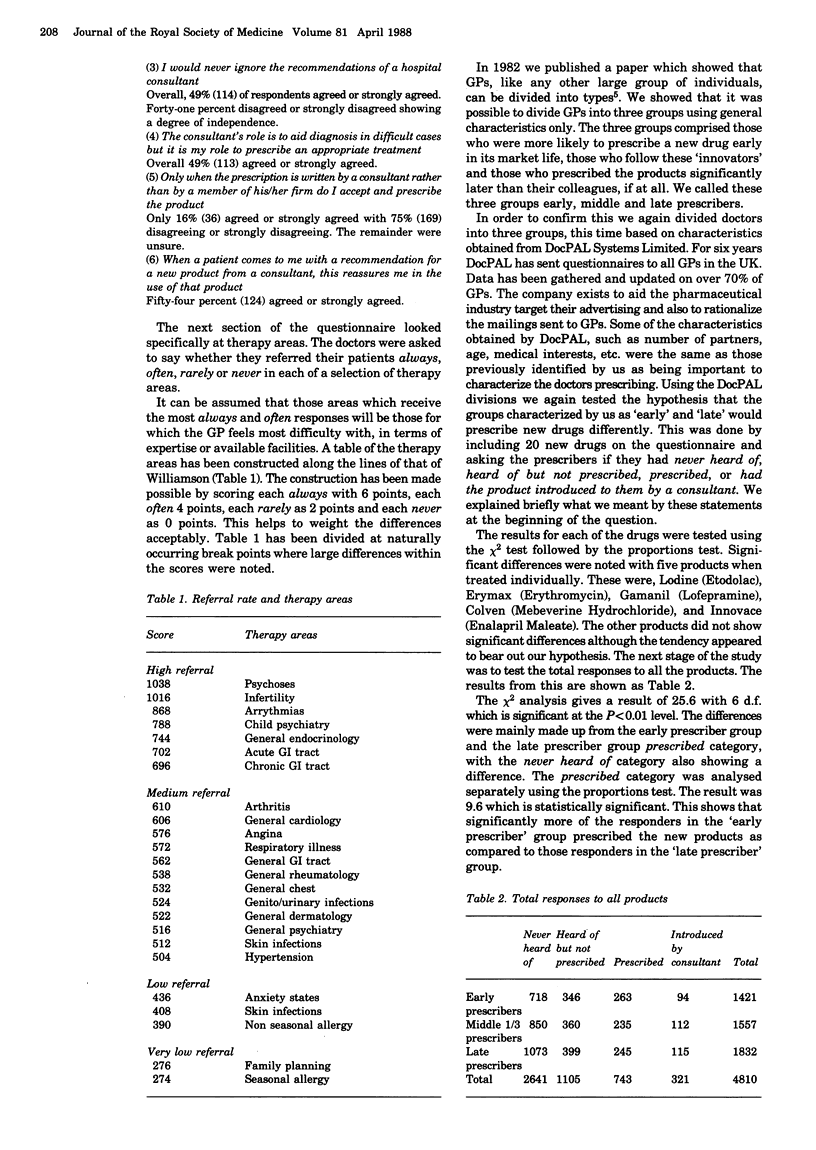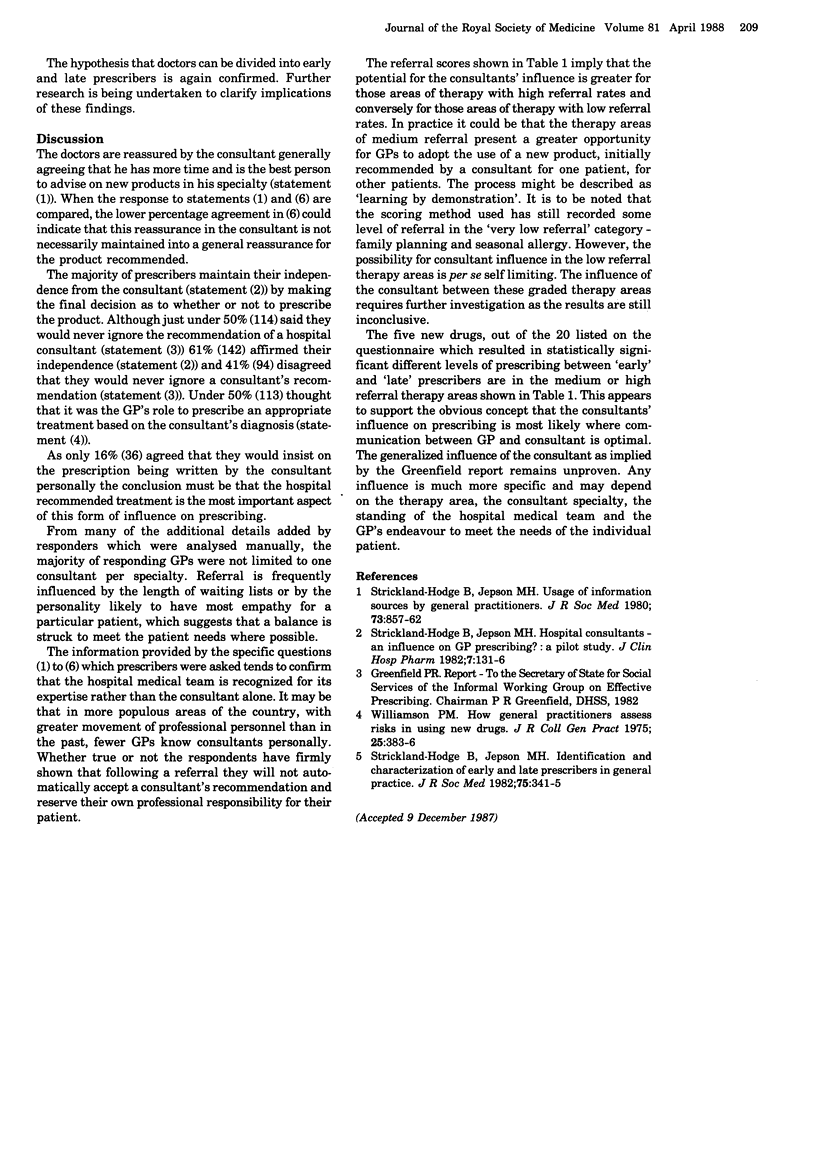Abstract
A questionnaire was designed and posted to 600 general medical practitioners in the West Midlands. The results indicated that the prescribers were reassured by the hospital consultant although independence was maintained in prescribing decisions. The hospital medical team was recognized for its expertise rather than the consultant alone. A table was constructed from the results to show the therapy areas in which doctors prefer to refer their patients. Consultant's influence in prescribing is most likely where communication between GP and consultant is optimal. The generalized influence of the consultant as implied by the Greenfield report remains unproven. Any influence is much more specific and may depend upon therapy area, the consultant specialty, and the standing of the hospital medical team. The innovativeness of the prescriber which was also considered may also have an influence as to how the consultant's recommendations will be accepted.
Full text
PDF


Selected References
These references are in PubMed. This may not be the complete list of references from this article.
- Strickland-Hodge B., Jepson M. H. Hospital consultants--an influence on G.P. prescribing? A pilot study. J Clin Hosp Pharm. 1982 Jun;7(2):131–136. doi: 10.1111/j.1365-2710.1982.tb01013.x. [DOI] [PubMed] [Google Scholar]
- Strickland-Hodge B., Jepson M. H. Identification and characterization of early and late prescribers in general practice. J R Soc Med. 1982 May;75(5):341–345. doi: 10.1177/014107688207500510. [DOI] [PMC free article] [PubMed] [Google Scholar]
- Strickland-Hodge B., Jeqson M. H. Usage of information sources by general practitioners. J R Soc Med. 1980 Dec;73(12):857–862. doi: 10.1177/014107688007301208. [DOI] [PMC free article] [PubMed] [Google Scholar]
- Williamson P. M. How general practitioners assess risks in using new drugs. J R Coll Gen Pract. 1975 May;25(154):383–386. [PMC free article] [PubMed] [Google Scholar]


